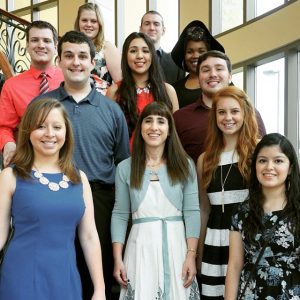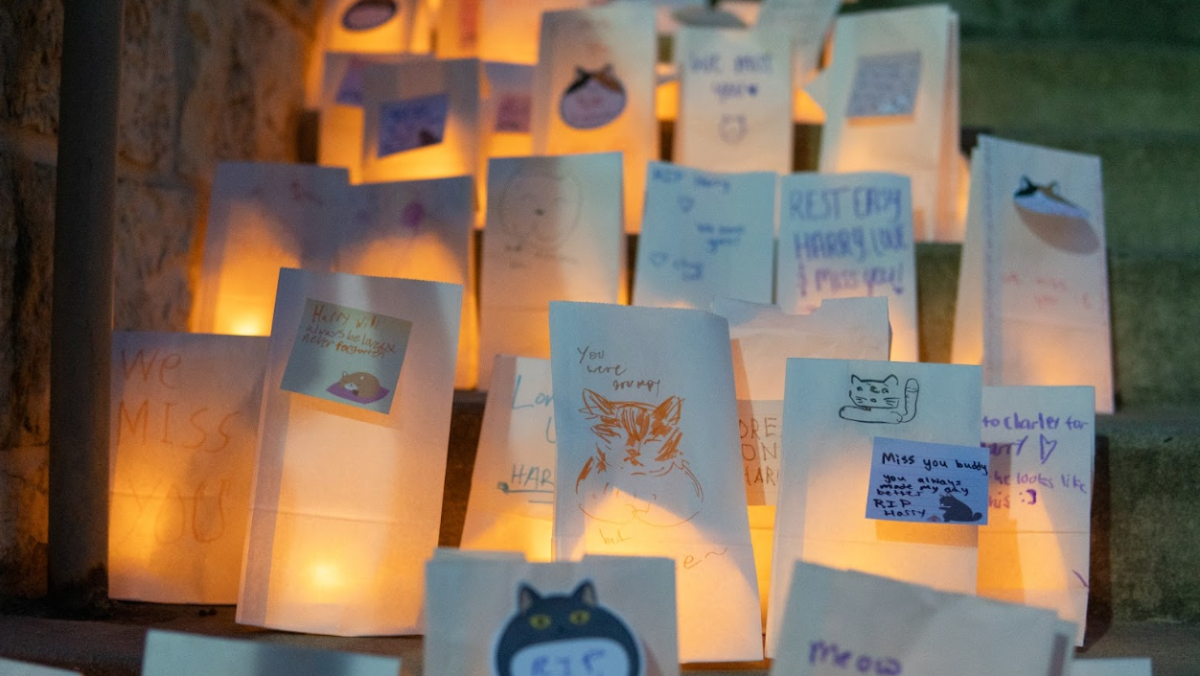“The University of Texas at San Antonio seeks an innovative and enthusiastic candidate for the Dean of the Honors College,” states the Honor’s College website, advertising its Dean search.
Many Honors students, however, are disappointed with the administration’s decision not to appoint the Interim Dean of the Honors College, Dr. Ann Eisenberg to the position permanently. There has been an overwhelming response from both former and current students – angry and baffled by the decision- who have taken to social media to voice their outrage and demand answers from the institution that calls them asking for donations.
“Dr. Eisenberg has the social capital necessary to facilitate connections between alumni and current students. If she were made the Dean of the Honors College, I expect that generations of alumni will heed her call to give back to UTSA and spend time mentoring UTSA undergrads,” said Rawan Arar a 2008 sociology graduate of the Honors College.
Dr. Eisenberg served as the Associate Dean and Interim Dean of the Honors College and is an associate professor of psychology at UTSA. She received her B.A. and M.A. in psychology from The John Hopkins University and obtained her Ph.D. in developmental psychology from the University of California of Berkeley and has spent over 20 years developing the Honors College.
According to Joe Izbrand, the associate vice president for communications & marketing chief communication office, “no announcement has been made regarding a Dean of the Honors College so it would be premature to discuss it at this time.”
Despite Izbrand’s comment, Eisenberg posted a status to her Facebook page on March 25 stating that she “is not going to be Dean of the Honors College at UTSA” and garnered responses from over 250 outraged former students.
In early February, an email was sent to all Honors College students inviting them to serve on a student panel that would interview the final four Dean candidates (there were two men and two women). Six students served on the “self-selected” panel and interviewed candidates that had been identified by a search committee; this search committee is described as an “advisory committee” as it would submit recommendations to the Provost and Vice President for Academic Affairs, Dr. John Frederick and UTSA President Dr. Ricardo Romo who ultimately would make the decision.
Faculty of the Honors College were also present during this initial interview process.
“It was an open forum where all students could come and meet the candidates and have their voices heard,” said Dr. Kolleen Guy – Honors College faculty member and associate professor of the Department of History. “It usually ends there, but Dr. E. and an outside candidate were brought in for a second round of discussions which weren’t open to the committees. It was really only the administrators at that point.” The two candidates standing in this second round of closed interviews were Dr. Eisenberg and Dr. Sean Kelly, the Interim Dean of Undergraduate Studies at Florida Gulf Coast University.
“This candidate (Dr. Kelly) is really quite good and definitely qualified. What took me aback was that it was closed off and this woman, (Eisenberg) with over 20 years of experience and knowledge of the institution was not chosen.”
“If all things were fair and equal, it seems that Dr. Eisenberg would have been the obvious candidate. I just thought she was the better candidate and they would’ve promoted from within,” Guy expounded. Guy stated that she does not have any evidence that the decision was a sexist one. She did point out that there is a precedent at UTSA, to promote Interim Deans from within a certain college and gave the example of the Dean of COLFA, Dr. Daniel Gelo.
“They never did a nationwide search for his job. I don’t understand why they didn’t do the same thing with the Honors College and Eisenberg.”
Matthew Trevino, an Honors College philosophy senior served on the student panel that interviewed the first round of the four Dean candidates.
“One of the candidates made several comments implying that the administration did not view Dr. Eisenberg favorably. However, they dodged questions when asked what exactly they meant. According to the Provost, the administration wanted someone with strong fundraising skills,” Trevino said.
Trevino said that his heart sank when he found out Eisenberg was not offered the position.
“I met each candidate interviewed, including Dr. Sean Kelly. While I am certain that the Honors College will be fine under his stewardship, I am concerned that he won’t do so well under this administration. If they can’t respect someone who has spent 25 years building the Honors College, how will they treat him?” Trevino observed.
It should be noted that the Provost, Dr. Frederick, “is stepping down” (according to UTSA Today) effective June 1, and was out of the office this week and therefore could not be reached for a comment.
Josh O’Mullan, a 2015 graduate from the Honors College with a degree in psychology finds the decision not to hire Eisenberg alarming.
“I had not only hoped she would be hired as Dean, but was certain that she would get the job. There is no question that Dr. Eisenberg far exceeds the superior standards that the university sets for such a leadership role. I am unsure why the university would make such a confusing decision, but it reflects the barriers faced by women administrators in higher education, especially considering the fact that males comprise 70% of UTSA leadership,” O’Mullan stated.
Of the nine colleges within UTSA, only two have Deans that are women (Dr. Betty Merchant of the College of Education and Human Development and Dr. Joann Browning of the College of Engineering).
“I am not a believer that a person should be given a job based on their gender. I totally believe that the strongest candidate should be chosen,” said Sharon Agold, a 2013 Honors College graduate. “You have to look at the impact they have made on the people around them, what they have done to further the organization, and the years of loyal service they have given. Once you consider all of that along with the degrees and awards, I think the only answer is Dr. Eisenberg.” Agold echoes countless other students who feel “confused, ashamed and hurt by this process.”
Many students expressed the personal connection they felt with Dr. Eisenberg who counseled them during bouts with anxiety, depression, cancer diagnoses, deaths of relatives and the struggles of being a first-generation student.
As a first-generation student, Sanah Jivani felt that her dreams and aspirations were out of reach.
“She laid out a four year plan for me, ensuring that I reach each of my milestones. She even laid out a plan for graduate school. She believed in me so much, that somehow, along the way, I’ve learned to believe in my own academic journey,” Jivani stated.
Alumnus Sundas Mohi said that she felt cultural pressure to pursue a career in the health field despite her passion for music. Dr. Eisenberg “would always question whether medicine was truly what I wanted to do. And when I finally decided that I didn’t want to do medicine anymore, she did not make me feel ashamed or guilty for all of the work that she put in to help me (writing letters of recommendation, and drafting honors contracts with several professors).”
In fact, Eisenberg was happy that Mohi had followed her passion and even came to her senior recital.
Diana Davila, honors student and political science junior hopes that administrators know how disappointed students are in their decision not to make Dr. Eisenberg the Dean of the Honors College and believes “it would be helpful for students to receive an official statement about why this decision was made.”
Students who have rallied behind Dr. Eisenberg hope that this onslaught of support will demonstrate the investments she has made in their lives and that the board might reconsider its decision.









